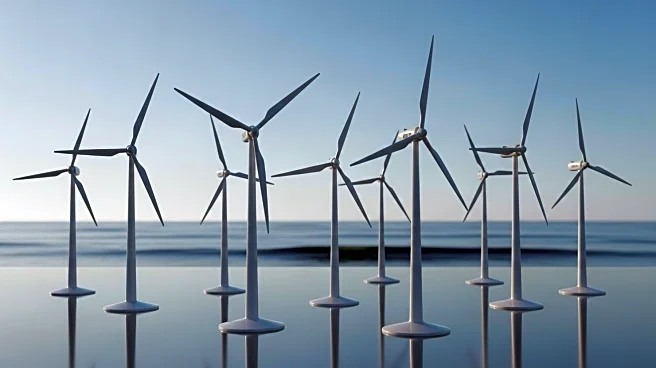What's Happening?
Lithuania's second offshore wind tender has failed due to a lack of interest from international and local companies. Initially launched in 2023, the tender was paused for two years before being reactivated in June 2025. Despite efforts to attract bids, only one bid was received from the local utility company Ignitis in October, which was insufficient to meet the national regulations requiring at least two bids for the lease to be issued. The tender aimed to develop a 700 MW wind farm in the Baltic Sea, which would have been Lithuania's second offshore wind project. The first project, also 700 MW, was won by a joint venture between Ocean Winds and Ignitis. Recently, Ignitis announced plans to buy out Ocean Winds' stake, becoming the sole owner of the project. The failure of the tender reflects broader challenges in the offshore wind industry, including reduced ambitions from Western companies due to inflation and geopolitical tensions, particularly with Russia.
Why It's Important?
The failure of Lithuania's offshore wind tender highlights significant challenges facing the renewable energy sector in Europe. The lack of interest from international companies underscores the impact of geopolitical tensions and economic factors on investment decisions. Lithuania's low wind subsidies and security concerns, particularly regarding Russia's capabilities to disrupt subsea infrastructure, are deterrents for potential investors. This situation could slow down Lithuania's progress in expanding its renewable energy capacity, affecting its energy independence and climate goals. The broader trend of Western companies scaling back offshore wind projects due to economic pressures could have long-term implications for the global transition to renewable energy, potentially delaying efforts to combat climate change.
What's Next?
Lithuania may consider re-initiating the tender if market conditions improve, potentially adjusting its subsidy policies to attract more interest. Ignitis, now the sole player in Lithuania's offshore wind market, plans to proceed with its existing project, aiming for a construction permit by 2027. However, it seeks a new partner before making a final investment decision. The Lithuanian government might need to reassess its strategy to enhance the attractiveness of its wind energy projects, possibly by increasing subsidies or addressing security concerns. The global offshore wind industry will continue to monitor geopolitical developments and economic trends that could influence future investments.
Beyond the Headlines
The situation in Lithuania reflects broader ethical and strategic considerations in the energy sector. The reliance on renewable energy is crucial for reducing carbon emissions, but geopolitical tensions and economic instability pose significant challenges. Countries like Lithuania must balance their energy independence goals with the realities of international relations and market dynamics. The ethical dimension involves ensuring that energy policies do not compromise national security while striving for sustainable development. Long-term shifts in the industry may require innovative approaches to financing and international cooperation to overcome these hurdles.











